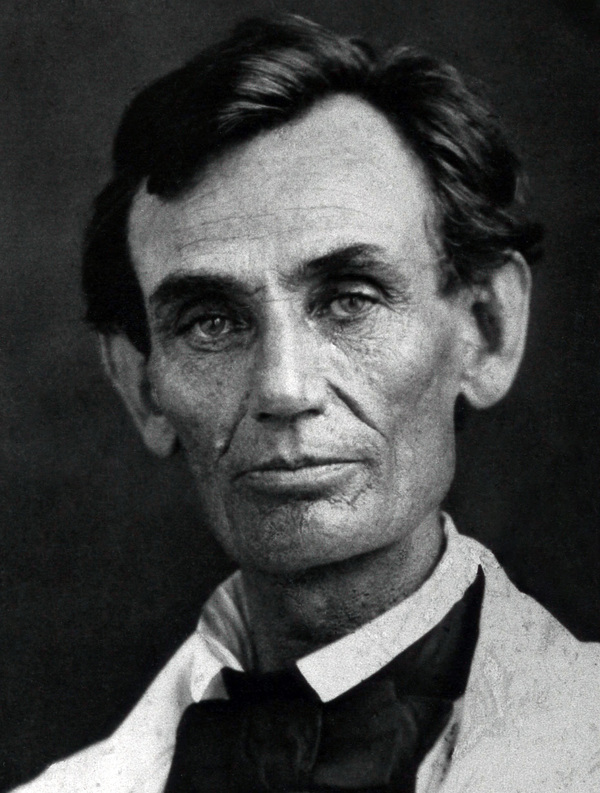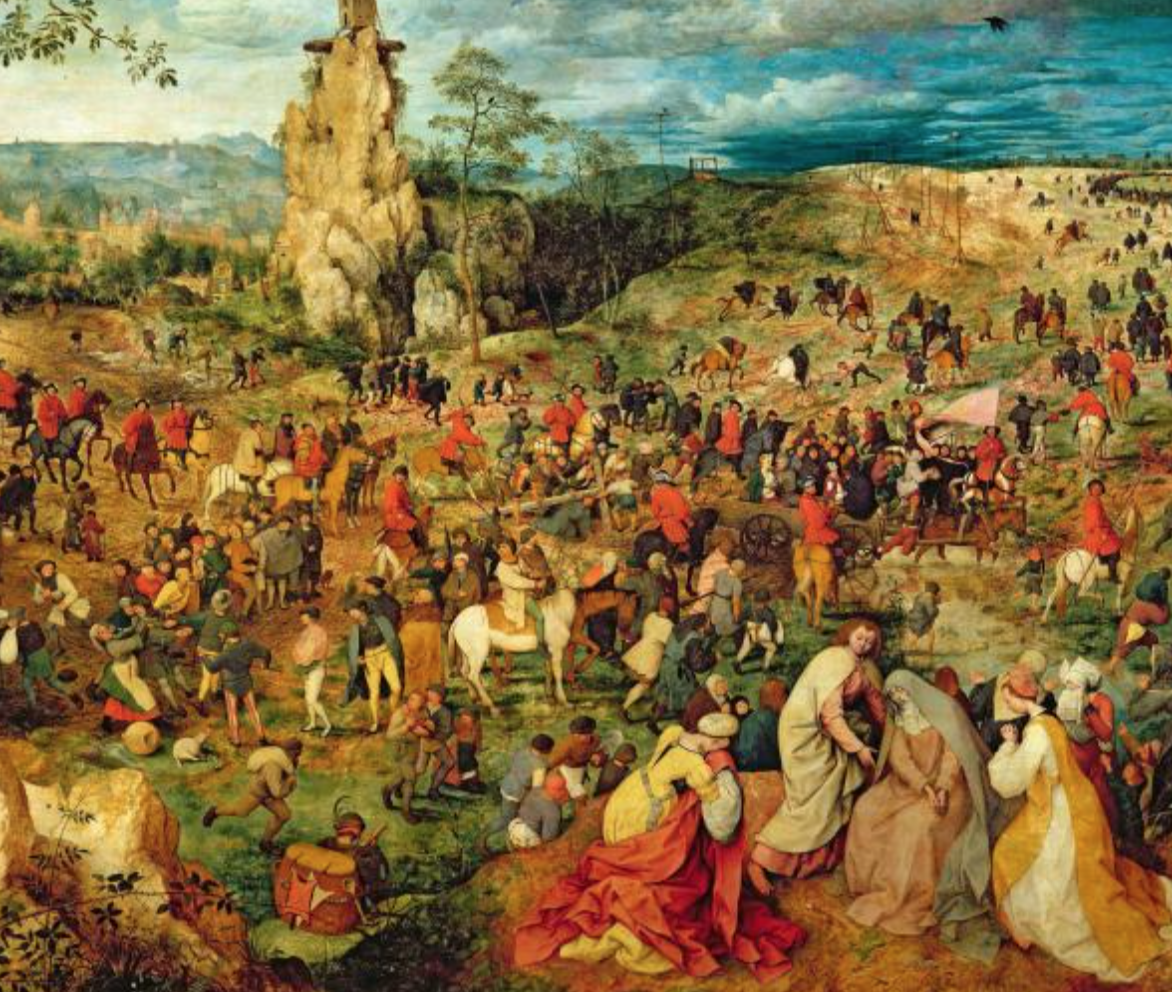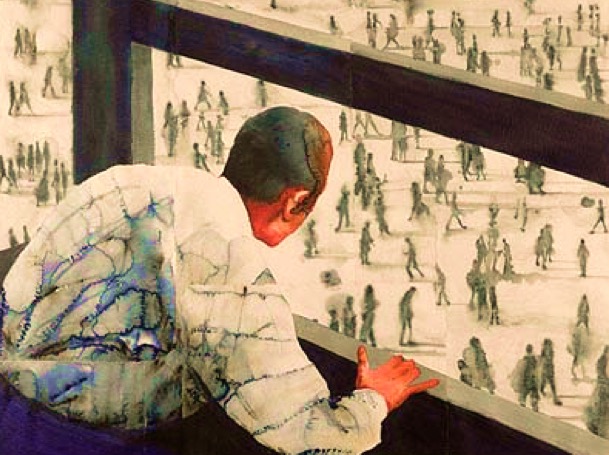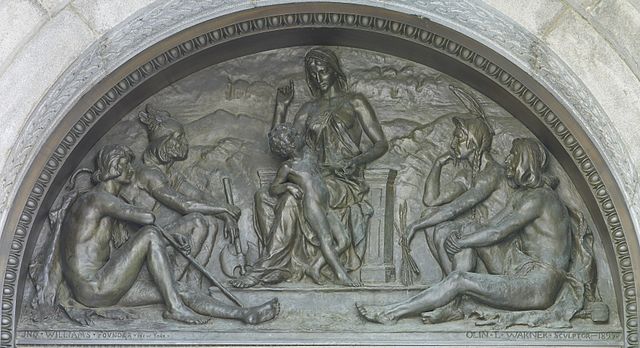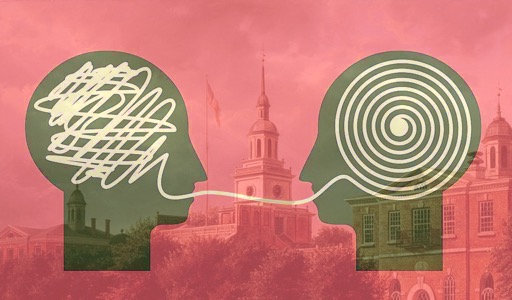Political prudence requires reason—which is why a "conservative rationalism" that embraces universals and particulars alike is needed now more than ever.
Founders Keepers
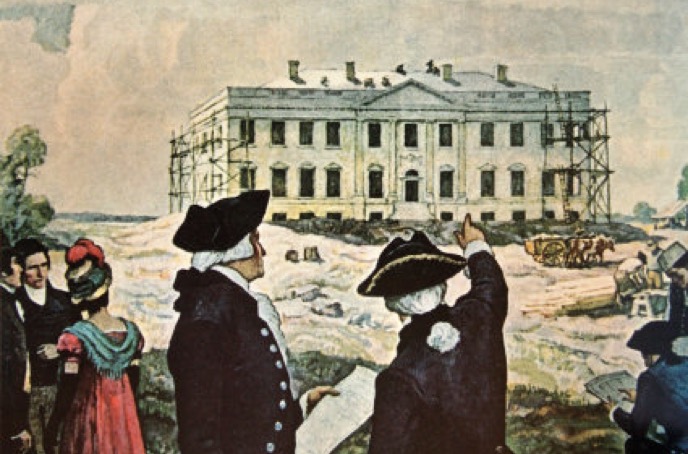
Only justice preserves regimes, not history or tradition.
Yoram Hazony presents a plan to revitalize American political conservatism.
He traces the failure of conservatism directly to the American founding and its exclusive reliance on the “Enlightenment rationalism” of Hobbes, Locke and Rousseau. The problem with this reliance, according to Hazony, is that it leaves no room for the vital elements that must be part of any political community—“inherited customs,” or traditions, especially religious traditions. Americans should have maintained their connections with inherited British traditions and the common law if they wanted to remain a stable and conservative political order. Hazony goes further: The American Revolution, with its appeal to universal principles (“universal reason”), was a mistake! It left the American founding exposed to the inevitable effects of liberalism: the decline of the stabilizing forces of tradition, especially Biblical tradition, and the elevation of individual liberty or individual freedom over responsibility and duty or restraint.
This has become a fashionable critique in of the American founding among intellectuals. But it is wrong. There is nothing inherent in the principles of the founding that made its decline inevitable.
American from the Beginning
In fact, what has caused America’s decline is a departure from founding principles—a failure to adhere to first principles as understood by the Founders. The American Founders did not understand the so-called “Enlightenment rationalists” in the simple-minded way Hazony does. No political thinker—not even the “rationalists” cited by Hazony—believed that a nation-state could be founded on “reason alone.”
One has only to give a cursory glance at the writings of Locke to see that he was not so foolish. In addition to the Second Treatise which contains ample reflections on the theological-political question, one has only to skim the First Treatise, to say nothing of An Essay Concerning Human Understanding or The Reasonableness of Christianity, to see that Hazony’s caricature is unjust. Hazony seems not to have taken any notice of these works.
Nor did the Founders read Locke as simply an epigone of Hobbes, as Hazony apparently does. And Hazony seems unaware that the American Founders were severely critical of Hobbes and Rousseau. Hamilton undoubtedly delivered the sense of the founding generation when he wrote that for Hobbes “moral obligation…is the mere contrivance of politicians, for the maintenance of social intercourse. But the reason he run into this absurd and impious doctrine, was, that he disbelieved the existence of an intelligent superintending principle, who is the governor, and will be the final judge of the universe.” Furthermore, Rousseau was criticized by Madison as one of the “visionary philosophers” whose “project…was as preposterous as it was impotent.”
Unlike Hazony, the American Founders did not consider the trio of “Enlightenment rationalists” to be in agreement, nor did they consider themselves to be “enlightenment rationalists.” Rather, one could say the Founders were phronimoi, Aristotle’s practically wise statesmen, who, in Jefferson’s words, had read “the elementary books of public right, as Aristotle, Cicero, Locke, Sidney, &c.” They were thus free to adopt and adapt the political wisdom and best practices from these elementary books to the American scene. It is true that they found Locke to be the best guide, but they understood Locke’s natural law as a reflection or adaption of Aristotle.
Hazony, who maintains that historical experience is the only guide for discovering “true principles,” indulges in some creative, not to say false, history when he remarks that Locke’s influence on the founding was “real but relatively small.” Instead, more conservative texts such as “the Bible, Montesquieu’s Spirit of the Laws, Blackstone’s Commentaries on the Laws of England, and Hume’s Tory History of England ultimately had the greatest influence.” Locke’s influence, Hazony suggests, was mainly on the Declaration of Independence, but the years of political chaos that succeeded its promulgation convinced the leading framers of the Constitution (including “Washington, Hamilton, Madison, Jay, and others”) to reject “the rationalist schemes” embodied in the Declaration’s Lockean language and “embrace a conservative constitution—in fact a restoration of the English constitution as applied to the conditions in the American colonies.” And Hazony cites the works of John Adams, an author of the Declaration, as proof of this thesis!
The theory that the Constitution was a conservative reaction to the revolutionary tenets of the Declaration has long-since been discredited, but it stretches credulity to suggest that it was an attempt to restore the English constitution. The principal authors of The Federalist, Alexander Hamilton and James Madison, accepted the Declaration of Independence as the authoritative source of the Constitution’s authority. In Federalist 39, Madison insisted that the proposed Constitution must be “strictly republican” because no other form of government could be “reconcilable with the genius of the people of America; with the fundamental principles of the Revolution; or with the honorable determination which animates every votary of freedom to rest all our political experiments on the capacity of mankind for self-government.” The “genius of the people” refers to the habits, manners, customs, history, traditions, and religion of Americans; the second and central factor that requires “strictly republican government” is “the fundamental principles of the Revolution,” i.e., the principles of the Declaration.
The third reason is that strictly republican government requires self-government; and that means rule by the consent of the governed, a principle squarely derived from the central principle of the Declaration that “all men are created equal.” In the central number of The Federalist, Madison doesn’t mention the English Constitution, but once again cites the Declaration as the authority for the Constitution as a replacement for the Articles of Confederation: “The first question is answered at once by recurring to the absolute necessity of the case; to the great principle of self-preservation; to the transcendent law of nature and of nature’s God, which declares that the safety and happiness of society are the objects at which all political institution aim and to which all such institutions must be sacrificed.” Everyone in the founding generation would have recognized this as a close paraphrase of the Declaration.
Natural Right, Not History
Hazony objects perhaps most of all to the use of social compact in the founding. The Declaration is obviously a quintessential example of social compact theory. In The Virtue of Nationalism, Hazony argues that the idea of social compact arising from individuals in the state of nature is a “myth.” Nation-states arise instead from the unification of clans and tribes either voluntarily or by conquest. There has never been a state of nature; everyone is born into some political association. Hazony thinks Locke and the “Enlightenment rationalists” perpetrated an ahistorical fraud in the name of “universal ideas” when they wrote of the state of nature and social compact.
Hazony may be unaware that Madison frequently stated that “all power in just and free Government is derived from compact.” In making this exemplary Lockean statement, Madison, of course, was not making an historical claim but a claim of legitimacy and justice. Rule without consent is against natural right and therefore unjust. Everyone who agreed that the principles of the Declaration dissolved all allegiance to the British Crown became, by that agreement, “one people” in their political or corporate capacity and a “good people” in their moral capacity. It was their freely given “consent” to the “just powers of government” that made the American founding principles just. Natural right, not history, is the touchstone and standard of justice.
William Blackstone argued in his Commentaries on the Common Laws of England that there was an “original contract” between the king and his subjects: subjects owed perpetual allegiance to the king in return for his protection. This ancient and original contract could not be modified and was not, as the contract in Locke, subject to revolution, because the king, not the people were sovereign. Nevertheless there was one historical myth or fiction that Blackstone admits was necessary to make the common law system work. This fiction was that the king was the owner of all property in the realm and that he allowed its use to others only on terms and conditions. Ultimate ownership remained with the king: a necessary fiction for the functioning of the common law, but not an historical fact. This is much like the use of the idea of social compact by the American Founders, although Hazony might be surprised at how literally they understood its terms.
Instead of the natural reasoning of Locke, Hazony says we should have relied on John Selden, John Fortescue and Edmund Burke, who stressed the common law and its historical development. These authors, he says, are advocates of the superiority of the common law to so-called “enlightenment rationalism.” True political principles are not based on reason, but history. All right is therefore positive right, the result of historical evolution and experience. Selden, writing in the mid-seventeenth century, before the “Enlightenment rationalists,” had argued that reason was impotent as a guide to political life because reason could reach virtually any conclusion; this was evidenced by the fact that throughout history the wisest philosophers disagreed about the most fundamental moral and political issues. This lack of agreement therefore made it impossible to rely on reason; experience and history were thus the only reliable alternatives as guides to the truth. Hazony agrees: “It is through trial and error in history that true political principles reveal themselves.” The only way to know which political principles are best “is to test them over centuries and in different locales so as to learn which of them hold good and over what range of circumstances.” This is how “history and tradition” replace reason as the ground of political principle.
It is then historical experience, not universal principle, that is the decisive factor in determining the strength of a nation and whether it will flourish or not. Hazony struggles mightily against the objection that this creates a purely historicist or relativist—even nihilist—standard. After all, there is almost nothing that has not been sanctioned by tradition in the long sweep of historical experience, including the horrors of slavery, suttee, and other barbaric practices that decency forbids me to mention. Many of these practices have received the approval of tradition for thousands of years. Have the societies that sanctioned these practices been degraded as a result? By what measure?
Hazony would have us believe that history and experience reveal nature and the principles of nature. The British Constitution is best, Hazony claims Burke argued, because it is the closest to human nature. But is this possible? Nature is the unchanging ground of changing experience. History cannot be understood without the unchanging ground of nature; history is constant change, it cannot produce the unchanging ground from which change can be understood. To make change itself the ground of understanding is historicism, and must be understood for what it is—nihilism, a standard-less attempt to judge good and evil.
A regime based on the “Laws of Nature and of Nature’s God,” which draws its authority from reason and revelation, offers an objective moral and political order based on the laws of nature, not on historical prescription. It is simply a mistake to believe that the condition of America today is due to defects of the founding principles, rather than a deliberate and calculated abandonment of those principles. Hazony is wrong! America’s founding document, the Declaration of Independence, the statement of the principles of the Revolution, was not animated by “Enlightenment rationalism.” As the late Harry Jaffa rightly remarked, “the doctrine of natural law and natural rights enshrined in the Declaration is a doctrine of natural and divine right.” The “Laws of Nature and of Nature’s God” rest on the twin pillars of reason and revelation.
Founders Ancient and Modern
The Declaration of Independence, it is true, relied for its point of departure on the self-evident truth that “all men are created equal.” This was the recognition of the universal nature shared by all human beings. But there was also a recognition that human beings required a “separate and equal” nation—a particular nation-state—for them to become citizens participating in the “just powers” of government.
This understanding of the universal and the particular is perfectly Aristotelian. Aristotle, of course, maintained that human beings shared the same nature, but required political life, the polis, for that nature to develop its full potential—to develop the human virtues, especially justice, the highest social or political virtue. Human beings were by nature political beings, although a founder was required to bring the polis into existence; the polis did not “grow” by nature or exist simply as an aggregation of clans or tribes. The common law, of course, does not recognize “founders.” The origins of regimes are lost to memory (and to reason).
According to Hazony, the nation-state is an amalgamation of clans and tribes, who maintain their loyalty to one another, without a recognizable founder. Aristotle, on the other hand, stressed the fact that the first to found a polis was a great benefactor. The American Founders likewise celebrated the importance of founding. They did not intend America to be a common-law regime.
The core of the American Revolution was that natural rights, those rights derived from the principles of human nature, replaced the historical rights or the prescriptive rights of the English common law. This replacement was deliberate on the part of the Founders. It was correction of injustice, a rejection of tyranny. Tyranny, no matter how much sanctioned by tradition, is still unjust. The English tradition of divine right of kings, as Lincoln reminded us, rested on the same basis as slavery. The consent of the governed replaced the divine right of kings as the foundation of the “just powers of government.” The English common law recognized only subjects; under the Declaration of Independence those who consented to be governed became citizens who actively participated in their own governance.
This was indeed a radical break with tradition; but was it fatal to America? Is this the cause of America’s current decline?
Aristotle made the revolutionary statement in The Politics that political science does not seek the traditional but the good. Aristotle, of course, understood the importance of the traditional to political life and knew that prudence or practical wisdom must be applied in recommending political change. The good may challenge the traditional and deprive it of reverence—a necessary but not sufficient condition of political life.
The law may compel but it has no power to persuade except through habit and custom, and these form only over a long period of time. Changing laws weakens their power and frays the bonds of community. But we know that not every law (or tradition) is just or good. Habits and customs and the laws that form them are too frequently derived from “accident and force” rather than “reflection and choice” (to use the formulation of Federalist No. 1). Justice, the aim of every political community, must determine how much deference is given to tradition in the pursuit of justice. After all, according to Aristotle, it is justice that preserves regimes and injustice that destroys them.
Madison was well aware of this problem. In the Federalist, Madison criticized Jefferson’s proposal to revise the Virginia Constitution by including a provision that would allow disputes concerning the separation of powers to be appealed directly to the people for resolution. Madison’s main complaint was “an objection inherent in the principle that as every appeal to the people would carry an implication of some defect in the government, frequent appeals would, in great measure, deprive the government of that veneration which time bestows on everything, and without which perhaps the wisest and freest governments would not possess the requisite stability.”
Madison, of course, was well aware of the role of opinion in republican politics. “When the examples which fortify opinion are ancient as well as numerous, they are known to have a double effect. In a nation of philosophers, this consideration ought to be disregarded. A reverence for the laws would be sufficiently inculcated by the voice of an enlightened reason. But a nation of philosophers is as little to be expected as the philosophical race of kings wished for by Plato. And in every other nation, the most rational government will not find it a superfluous advantage to have the prejudices of the community on its side.”
A nation of philosophers would be ruled by reason and an attachment to truth alone. But Madison and the founders, Hazony to the contrary notwithstanding, knew they were not founding a nation-state to be inhabited by philosophers. Opinion, preferably ancient opinion, would be needed.
What would be the source of that opinion?
In a regime founded in recent revolution, opinion supporting the regime will not be “ancient” and the reverence that usually accompanies the old will be unavailable. A philosopher might argue that nature or natural right is older than any tradition and therefore reverence is due to the fact of its eternity—the “Laws of Nature and of Nature’s God” are older than any tradition, including the English tradition. But this argument has little political appeal. Even so, an appeal to justice and right is not unavailing, especially when that appeal is coupled with a reference to the patriotic blood that was shed in the defense of rights and liberties in the Revolutionary War. This was a frequent meme of the Framers.
The Theological-Political Problem Resolved
Hazony seems unaware or uninterested in the theological-political dilemma that confronted Locke and the American Founders. He seems to think that because they were “Enlightenment rationalists” they were not concerned with religion, believing that “reason alone” was sufficient for political life. But in his superficial criticism Hazony does not take notice of the fact that they were acutely aware of the theological-political.
The wars of religion were still a fresh memory to Locke and other political philosophers of his era, and they were more than a distant memory to the American Founders. In the classical world, the laws of particular cities were always supported by their gods. Obedience to the gods and obedience to the laws were one and the same. As soon as there was a universal God for all cities, however, political obligation became problematic. In the Christian world, conflicts between obligations to God and obligations to civil authority became inevitable, and in cases of conflict, the first obligation of Christians was to God or ecclesiastical authority. As the apostle Paul wrote to the Philippians, “our government is in heaven.”
The universalism of Christianity makes an appeal to particular gods as the ground or foundation of the laws of a particular regime impossible. Some ground for political obligation—for politics—independent of Christian theology had to be found if political life was to be free from the political strife engendered by the theological disputes that arose within Christianity. Harry Jaffa probably understood this theological-political predicament better than anyone when he argued that
Christianity had established within the souls of men the idea of a direct, personal, trans-political relationship between the individual and his God. But this relationship did not determine what the laws were to be, or the precise character of the obligation owed to those laws. The idea of the state of nature—the idea of a non-political state governed by moral law—corresponded to the relationship which every Christian had with every other Christian as he considered himself prior to and apart from his membership in a particular civil society. Just as every Christian was under the moral law, without being a member of civil society, so every human being was under the moral law of the state of nature, prior to entering a particular civil society by way of the social contract.
Locke makes clear that everyone is bound by the law of nature—the moral law—in the state of nature. Thus, Jaffa argues, the social contract, by creating particular political communities, reestablishes the idea of man as by nature a political animal, an idea that was absent from the apolitical universe of Christianity.
For Christians, the highest aspirations are in the life to come, and political life in this world is merely a preparation for the next. Paul cautioned the Colossians to “mind the things above, not the things on earth.” From this point of view, man is by “nature” apolitical. Social compact reaffirms man’s political nature by establishing particular political communities where this-worldly aspirations are the proper objects of political life.
At the same time, man’s universal nature is affirmed by the law of nature that is the standard and measure by which particular communities are judged. While reasserting man’s political nature, social compact at the same time retains its compatibility with the City of God because natural law is understood to be, in Locke’s terms, “the Will of God” or reason which is the “the voice of God.” Social compact provided a ground for political obligation, based in reason and consent, that was also absent in Christianity. Locke thus restored man’s political nature based on higher law, the laws of nature—and he did it on Aristotelian grounds!
Of course, Locke spoke most often in terms of individual rights, something that Hazony deplores as leading to radically autonomous, amoral individuals. But we have to understand that the origin of the idea of individual rights was in Christian theology itself, where man’s relationship to God is personal and individual; thus, the political relationship must also be “personal,” that is, based on individual rights. Locke understood that the principles of natural right must be able to accommodate the regnant theology. Rights must belong to individuals; that was good theology—and it was good government.
As mentioned earlier, the American Founders read Locke as enlightened statesmen, gleaning political wisdom from his superior understanding of the theological-political problem. It was the absence of theological disputes that made the success of the American founding possible—a rare time in history when such a providential dispensation favored political founding—a dispensation prepared in large measure by Locke. Locke’s Reasonableness of Christianity and his Letter on Toleration had as much influence on the Founders as the Second Treatise. Madison was right: compact is the ground of all just and free government and the theologians at the time of the founding agreed.
The Reverend John Tucker delivered “An Election Sermon” in Boston in 1771 that was profoundly influenced by Locke and typical of the many sermons that relied on compact to reconcile questions of theology and politics. “Civil and ecclesiastical societies are, in some essential points, different,” the Reverend declaimed. “Our rights, as men, and our rights, as Christians, are not, in all respects, the same.” It cannot be denied that God’s
Subjects stand in some special relation and are under some peculiar subjection to him, distinct from their relation to and connection with civil societies, yet we justly conclude, that as this divine polity, with its sacred maxims, proceeded from the wise and benevolent Author of our being, none of its injunctions can be inconsistent with that love of liberty he himself has implanted in us, nor interfere with the laws and government of human societies, whose constitution is consistent with the rights of men.
Tucker exhibited a common view among New England clergy: the constitution of the “divine polity” cannot be in conflict with any civil government “whose constitution is consistent with the rights of men” and the “love of liberty” that God implanted in human nature. According to Tucker, the proper constitution of civil government begins with the reflection that
all men are naturally in a state of freedom, and have an equal claim to liberty. No one, by nature, not by any special grant from the great Lord of all, has any authority over another. All right therefore in any to rule over others, must originate from those they rule over, and be granted by them. Hence, all government, consistent with that natural freedom, to which all have an equal claim, is founded in compact, or agreement between the parties;—between Rulers and their Subjects, and can be no otherwise. Because Rulers, receiving their authority originally and solely from the people, can be rightfully possessed of no more, than these have consented to, and conveyed to them.
Thus compact seems to be the key to reconciling divine polity and civil polity. Reverend Tucker began the sermon with the invocation that “the great and wise Author of our being, has so formed us, that the love of liberty is natural.” Liberty is the law of God and nature.
The laws of divine polity are prescribed in the Gospel; those of civil polity are derived from social compact. What connects divine polity and civil polity is the liberty that God created as the essential part of man’s nature. Social compact is the reasonable exercise of that freedom in the formation of civil society. Thus it seems that the theological-political problem—the problem of potentially conflicting obligations between divine polity and civil polity—is solved by Tucker, at least on the moral and political level, on the basis of social compact, which provides the only rightful basis for government because it is the only origin of government consistent with natural liberty.
In fashioning his account of the social compact, Tucker readily acknowledges the influence of “the great and judicious Mr. Locke,” extensively quoting and citing “Locke on Civil Government.” I think it fair to say that “America’s philosopher” dominated the pulpit no less than he dominated legislative halls and constitutional conventions. Thus a remarkable providence seemed to have guided the American founding in the form of a dispensation from the theological-political disputes that would have otherwise rendered any attempt to establish constitutional government impossible.
The Founder’s Aristotelian Happiness
The Founders’ decision to follow Locke on social compact—“the principles of the Revolution”—meant that the end of government was the “safety and happiness” of the American people, an Aristotelian conception that helped to insulate the founding from the storms of modernity that were threatening Europe. But Hazony doesn’t believe that the Founders succeeded. All the defects of modernity which we witness today, he argues, find their source in the universal regime of the Declaration.
A radical regime change—a re-adoption of the common law, English traditions and religion—should be the first step in a conservative revival, not of founding principles, Hazony argues, but of an overcoming of those principles. But is it true that we lack religion and religious traditions?
We have already discussed the remarkable agreement between reason and revelation at the founding. This was an agreement on the political and moral level. On the highest level, the question of what perfects or completes human life, revelation or reason (philosophy), is unanswerable. But on the moral and political level there can be agreement—and this was the agreement that carried the founding. Many critics say that the founding was about the protection of rights, and only the protection of rights, with no specification of duties, and that this way of thinking eventually led to the autonomous individual. But this is wrong!
When the Declaration speaks of the end of government as the “safety and happiness” of the people, it does not mean that “happiness” is understood as something private or idiosyncratic. George Washington remarked in his first inaugural that
there is no truth more thoroughly established, than that there exists in the economy and course of nature, an indissoluble union between virtue and happiness; between duty and advantage; between the genuine maxims of an honest and magnanimous policy, and the solid rewards of public prosperity and felicity: Since we ought to be no less persuaded that the propitious smiles of Heaven, can never be expected on a nation that disregards the eternal rules of order and right, which Heaven itself has ordained.
This statement delineating the natural connection between virtue and happiness is, of course, perfectly Aristotelian. It understands the “pursuit of happiness” to mean the “pursuit of virtue.” It is very likely that the Founders learned this Aristotelian argument at a distance from Locke. Consider this statement from Locke’s An Essay Concerning Human Understanding: “For God,” Locke says,
having, by an inseparable connection, joined Virtue and public Happiness together; and made the Practice thereof, necessary to the preservation of Society, and visibly beneficial to all, with whom the Virtuous Man has to do; it is no wonder, that everyone should, not only allow, but recommend, and magnifie those Rules to others, from whose observance of them, he is sure to reap Advantage to himself.
Madison, of course, was the author of Washington’s inaugural address, and he, if not Washington, was well acquainted with Locke’s Essay. This passage would have readily sprung to mind. It is easy to see how these two enlightened statesmen, who were concerned with the political things as such, were led by the pressure of events to an understanding of Aristotelian natural right through a reading of Locke. Locke also discusses the “pursuit of happiness” in the Essay as “our greatest good” and describes the pursuit of “true happiness,” not as a “value judgment” or an individual “idiosyncratic preference,” but as a moral obligation.
The Founders’ understanding of the “pursuit of happiness,” an understanding derived from a long tradition leading back to Aristotle, was hardly a tradition of “Enlightenment rationalism,” but a tradition that supplied the grounds for justice derived from natural right. Aristotle says natural right is a part of political right and is available to any political community as long as there are phronimoi or wise statesmen who recognize how justice can be realized under the particular circumstances that confront them. Justice or natural right, not history or tradition, is always the principal question facing every nation-state.
Why Decline?
There can be little doubt that morality has suffered a precipitous decline in modern America. But it is disingenuous to place the blame—or any part of the blame—on the American founding. The decline in the political principles of the founding and the moral principles taught by religion in American churches have occurred at the same time, as both have been under assault by radical modernity in its various guises, historicism, positivism, nihilism.
The principles of the American founding and the religion of the founding stood together against the tides of radical modernity that inundated Europe. But after the Civil War, radical modernity came to American shores through the works of Rousseau and Hegel and found its willing adherents in Progressivism and its successor movements. We have argued that the Declaration rested on the twin pillars of reason and revelation. In its attempt to undermine the founding, Progressivism attacked both reason and revelation. Reason was rendered impotent to decide between competing value judgments, being itself the product of irrational factors. Revelation and the religions it inspired were themselves “revealed” to be mere superstitions.
Modern morality is grounded in value free relativism, or the idea that reason cannot decide between competing values; this view finds no support in the founding principles. Oliver Wendell Holmes, for example, among many others who rejected the founding in the progressive era, said the world was nothing but “fighting faiths” and that the one that prevailed in the market place of ideas must be given preference—whether it was democracy or the dictatorship of the proletariat. The Founders knew, of course, that there was an objective difference between tyranny or dictatorship and democracy and freedom; it was not merely a matter of “value judgment,” or, for that matter “history or tradition.” Similarly, mainstream churches today have accepted, by and large, the tenets of the various strands of “liberation theology,” all of which deny the legitimacy of the restrains on private and public morality imposed by the “Laws of Nature and of Nature’s God.”
To the extent that we can deny that such laws exist we are free from the restraints of God and Nature. Today, mainstream churches embrace all manner of sexual behavior and identities, for instance, ordaining gay, trans, and women ministers. If the relevance of nature is denied, then the distinction between the sexes and various kinds of sexual activity are irrelevant.
A more radical liberation is entailed in the denial of the existence of God. This means that no restraints on human beings from a Supreme Being who governs the universe are valid. This is not the supreme act of liberation, but it is close. None of these follies are supported or inspired by the principles of the Declaration of Independence, which does not offer any support whatsoever to historicism and nihilism or the radical morality that it generates.
Our Sacred Honor
Hazony says America desperately needs to limit freedom with restraint and create a sense of honor if it has any hope of are recovering conservatism. He seems to think that American principles exclude restraint and the idea of honor, that the radical individualism that was a part of “Enlightenment rationalism” disfavors any limits on freedom and provides no basis for honor as a virtue. In a nation based on the principle that “all men are created equal” there is no room for those who would restrain themselves to do what is honorable, to engage in self-sacrifice, or devote themselves to family, parents, country or God.
Hazony apparently does not notice the closing statement of the signers of the Declaration of Independence: “we mutually pledge to each other our Lives, our Fortunes and our sacred Honor.” The signers are willing to sacrifice life and property—both individual natural rights—to preserve their honor. They believed that honor or justice was of higher rank than the natural right to life or property. Clearly the signers of the Declaration ranked the goods of the soul (honor, justice) higher than the goods of the body (life, property).
Thus honor (“sacred honor”, no less) has always been important in the American regime, but like every important objective truth of the Declaration it has been attacked relentlessly by the forces of Progressivism. Hazony must notice that honor is still an important part of American life. When threatened, America’s young men and women rush to the ramparts with honorable zeal. Think of the response to 9/11 and more recent wars. Every soldier who puts his life at risk believes—as did the signers of the Declaration—that there is something more important (more honorable) than his life. This is hardly the radical autonomy (the sense of unlimited freedom) that we hear so much about.
Yet Hazony is right that we are surrounded by a rapidly increasing number of the self-absorbed for whom honor has no influence. Is the solution to adopt an historical tradition that has become wholly alien to us, or does the solution reside in readopting those twin pillars of morality and politics, reason and revelation, that once animated the country? The Declaration of Independence provides the grounds for the “just powers of government” and, as a long tradition of political thought has proven true, it is justice that preserves regimes, not history or tradition.
The American Mind presents a range of perspectives. Views are writers’ own and do not necessarily represent those of The Claremont Institute.
The American Mind is a publication of the Claremont Institute, a non-profit 501(c)(3) organization, dedicated to restoring the principles of the American Founding to their rightful, preeminent authority in our national life. Interested in supporting our work? Gifts to the Claremont Institute are tax-deductible.
The liberal order rests on conservative, not rationalist, foundations.
The traditions of American civilization carry intelligible moral ideas.
If local communities are to survive, institutionalized shame toward America must be rooted out.
When a good is not enough, we need to nourish it anyway.
Our new world sheds new light on the relations between reason and tradition.

